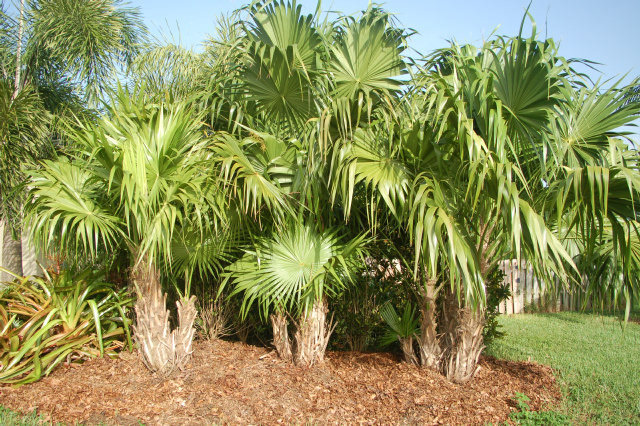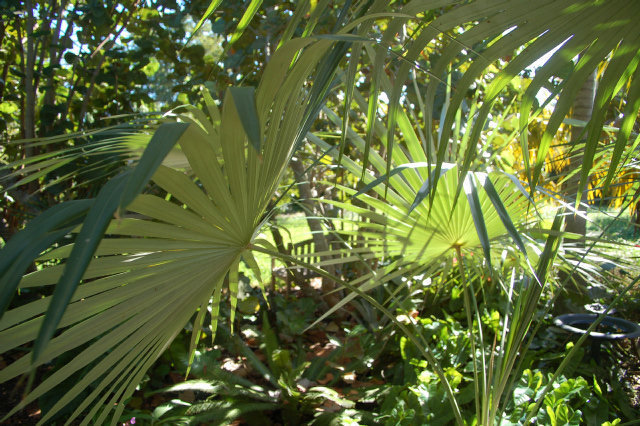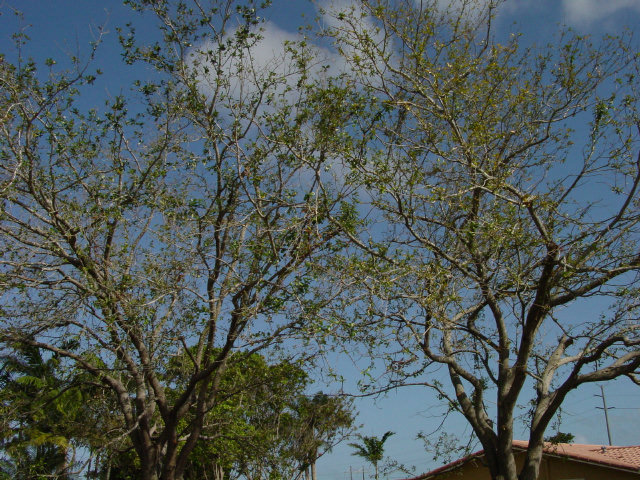Helping Your Garden Look Its Best

As Published in the Miami Herald
Summer in South Florida means an explosion of growth in our gardens caused by high humidity, warm temperatures and abundant rains. Plants thrive this time of year and use the rains and warm weather to produce most of their growth for the year. Because this is such a good time for growth, here are several actions you can take in your garden to make sure it is getting what it needs.
Fertilize
Because plants are growing so rapidly during the summer, they may need more nutrients than the meager amount they can pull from our limestone-based soil. Plant choice plays a major role in how much nutrition you need to add. Many plants — especially natives and those well adapted to South Florida — can do well with minimal inputs of fertilizer, but others may need help.
 |
| Fertilizer can benefit your plants if used correctly. |
Fertilizers are always labeled with three numbers, corresponding to the percentage of nitrogen, phosphorus and potassium in the formulation. Palms do best with a palm special, 12-4-12. Flowering trees and fruit trees perform well with an 8-3-9. Most other plants will do well with a good general mix labeled 6-6-6. These types of granular fertilizer should be spread evenly just past a tree’s drip line, where most of the feeder roots are located. Make sure not to clump the fertilizer, as this may burn the plant’s roots. Placing your plants on a regular fertilizer schedule can greatly improve their overall health.
Weed and mulch
The wide variety of noxious weeds that find their way into your garden also benefit from summertime weather. It is important to keep them under control. Hand-pulling or removing weeds with a hoe is the most environmentally sound method of control. Herbicides can save time, but they are not recommended as they are unnatural and may harm your plants if used incorrectly.
 |
| A thick layer of mulch helps to suppress weeds and beautify your plantings. |
Once your weeds have been removed, put down a thick layer (six to eight inches) of mulch to help keep them from reappearing. But be careful not to place mulch directly next to the stems or trunks of plants, since it can cause rot. Properly applied, though, mulch has the added benefit of adding nutrition to your yard as it slowly decomposes. The most environmentally friendly type of mulch is eucalyptus mulch, which can be purchased at home improvement stores.
Be Water Wise
The summer months are wet, so make sure to shut down your irrigation system for the season. If you are worried about your plants drying out and don’t want to turn off your system, you can install a rain gauge to make sure the irrigation system doesn’t run if it has been raining.
 |
| Your garden in summer can be a beautiful place. |
Also be on the lookout for standing water, as it can be a breeding ground for mosquitoes. Walk through your garden and turn over any buckets, pots or other water-holding vessels.
Plants love rainwater, so think about ways you can collect it to use in the dryer months. Rain barrels are a good way to trap precipitation and there are workshops available throughout South Florida on how to create them.
Hurricane Preparation
Summer also brings with it the threat of hurricanes. You can help to prepare your garden for strong wind events by keeping your trees properly pruned. Hatracking, or removing all limbs above an arbitrary line, is not a good hurricane-proofing process. It creates weakly attached limbs that will break easily in a storm. Hatracking can also lead to overall tree decline and possibly death.
Proper pruning means using thinning cuts to open up your trees and allow wind to pass through them. Thinning cuts are made all the way back to a major branch or trunk of the tree. A well-pruned tree should let air and light pass through it, but not lose its overall shape and character. A good rule of thumb to remember is to never prune more than a third of the canopy.
 |
| Properly pruned trees, such as these oaks, allow light and wind to pass through. |
Your garden in summer can be a difficult place as high temperatures, weeds and rainy days can bring discomfort, but it can also be a wonderful place as so many things are growing, blooming and looking their best. Take time to enjoy your garden this summer and make sure to keep it looking its best.
Jeff Wasielewski is an Outreach Specialist at Fairchild and a professor of horticulture at Miami Dade College.
